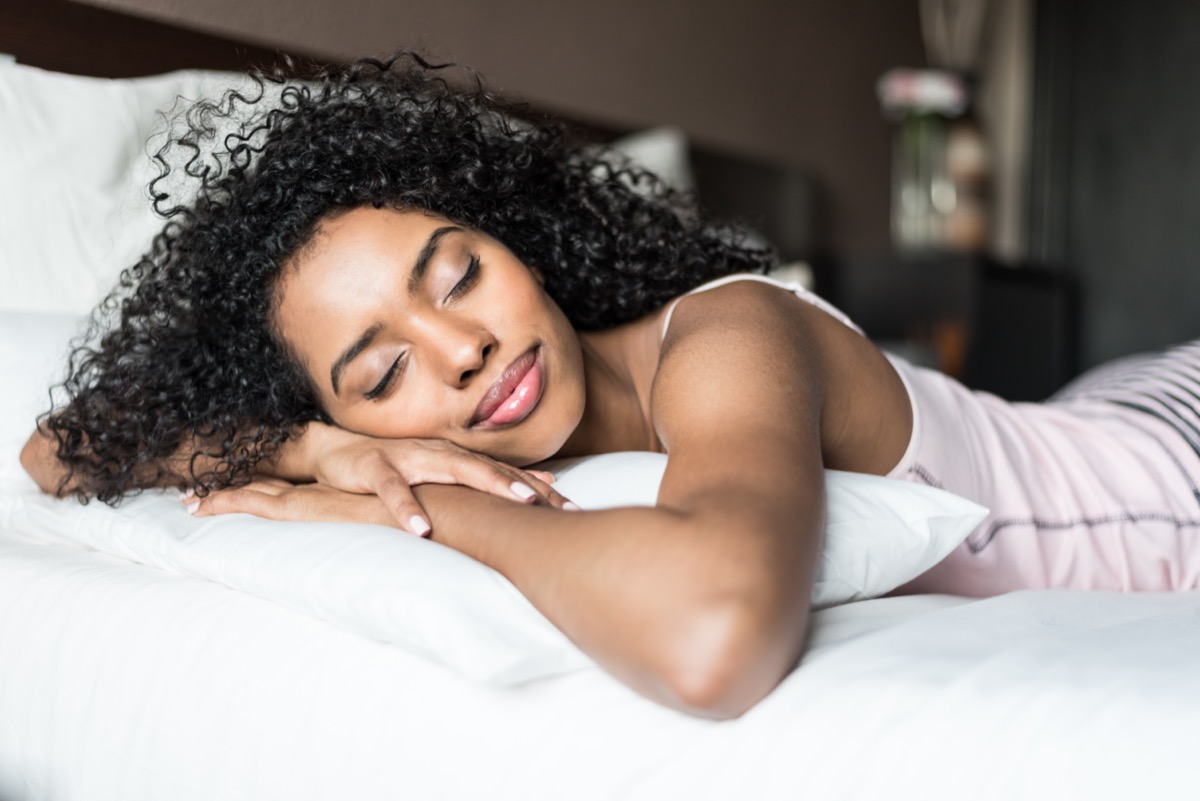Achieve a Sound Sleep: Seven Steps
If you or a loved one suffers from insomnia, you realize just how troubling the disorder is. As Psychology Today puts it, “a significant number of people struggle with insomnia, a common sleep disorder that can have severe deleterious effects on sufferers’ mental and physical well-being.”
And each and every one of our daily activities has an impact upon our sleep. This includes everything from our eating habits to our outdoor activities. Beyond this, our brain biology and stress levels have an impact as well. When viewed in this light, it is not difficult to see that insomnia could be the result of a combination of various underlying issues.
However, if you follow our actionable advice, you will increase your chances of achieving a good night’s sleep and functioning throughout the day as a result.
What Is Insomnia?
As pointed out by Mayo Clinic, “Insomnia is a common sleep disorder that can make it hard to fall asleep, hard to stay asleep, or cause you to wake up too early and not be able to get back to sleep.”
Actionable Advice
1. Use Words Wisely: Don’t Mislabel Yourself
Words truly matter. After all, we not only speak with words but also think with them. This is why negative thinking so negatively impacts people’s lives. Knowing this, don’t merely accept that you are “not a good sleeper.” Instead, you just need to make some adjustments in your life and find a solution to your insomnia.
And as we alluded to, language plays a key role in this, so choose your words carefully.
None of this should be surprising since we think in words, and our thoughts impact every area of our lives, ranging from our relationships to our work mindset to our sleep habits.
Solution
Employ positive thinking and use words wisely, eliminating the word “can’t” from your vocabulary when it comes to sleeping.
2. Minimize Your Exposure to Blue Light at Night
A crucial factor for sleep is the pineal gland’s production of melatonin–the sleep-inducing hormone–but light could interfere with this. As WebMD puts it, “More so than any other color, blue light messes with your body’s ability to prepare for sleep because it blocks a hormone called melatonin that makes you sleepy.”
Solution
As bedtime approaches, minimize your exposure to blue light sources (e.g., tablets, smart phones, televisions, computers). Besides, this is a great alternative to relying on purchasing melatonin and the drug store.
3. Minimize the Impact of Stress
Everyone seems stressed these days, and that could have a significant impact upon your sleep as well. And not getting enough sleep only adds to the already-existing stress. Thus, a vicious cycle is created.
As Medical News Today puts it, “Frequently being in a heightened state of alertness can delay the onset of sleep and cause rapid, anxious thoughts to occur at night. Insufficient sleep can then cause further stress.”
Solution
There are a variety of healthy ways to manage stress.
Ways to Manage Stress
- Positive Thinking
- Exercise (e.g., Walk, Swim, Lift Weights)
- Meditate
- Avoid Caffeine
As for exercise, it is always wise to consult with a physician before implementing any strenuous exercise plan though, especially if you have a medical condition.
Note that far too many people manage their stress with alcohol or illegal drugs. However, they only deepen their problems and exacerbate their anxiety in the long-term. Ensure that you avoid such problems, as tempting as the short-term relief might seem.
4. Practice Effective Bedtime Routine
First and foremost, recognize what inhibits sleep. This includes both negative thinking and exposure to blue light–both of which ought to be minimized.
As we mentioned already, meditation could minimize stress and negative thinking. Plus, we discussed avoiding the negative thought that you are “not a good sleeper” should be avoided.
Solution
As we mentioned already, meditation could minimize stress and negative thinking. And remove devices associated with blue light from your bedroom as much as possible. Instead, surround yourself with sleep-inducing aromatherapy products.
5. Utilize a Sleep Script
A sleep script will enable you to relax and get a better night’s sleep. It does this by coupling the power of positive affirmations with the power of self-hypnosis.
Solution
Record and then listen to yourself stating positive affirmations to reset your mindset and relax you. Listening to yourself has the added benefit of avoiding any arousal to outside suggestions.
After all, we sometimes tend to resist the influence of others, preferring to consider ourselves autonomous.
6. Start a Journal
Journaling has various benefits, and one is helping you overcome insomnia. You will be venting your worries and focusing on positive affirmations as well. That is, you will focus on replacing negative thinking with positive thinking. After all, as we have discussed above, words matter.
Besides you will enable your brain to generate solutions to any problems you write down. After all, our brain often does this best when at rest. For instance, German chemist August Kekule had a dream that revealed the structure of the benzene ring to him.
As Malcolm W. Browne put it in New York Times, “OF all the cases cited by psychiatrists, psychologists and historians of science to illuminate the role of symbolism in creative thought, none is more famous than August Kekule’s somnolent vision of a snake biting its tail, a dream that supposedly revealed the true structure of the benzene ring to the German chemist.”
And taking a step back, you could benefit from this phenomenon by redirecting your focus while your mind unconsciously works on a problem.
In his book Tinker Dabble Doodle Try, Harvard psychiatrist Srini Pillay discusses this phenomenon.
Solution
Start a daily journal and write in it the same time each day. To remember, you could leave it on the kitchen table so you do not forget.
Beyond this, performing your journaling at the same time each day, after about a month, it will become a habit–something you do without even giving it a second thought.
Additional Journaling Purposes
- Learn from the Past
- Assess Your Current Opportunities
- Imagine a Brighter Future
For instance, bestselling author Ryan Holiday has recommended journaling, citing historical examples such as the journals of Roman Emperor Marcus Aurelius, later published as Meditations–a classic of the Stoic philosophy.
7. Turn Everything Off
Turn off the devices, including the television and music. You want to lay down in a dark and silent room with nothing to stimulate your brain.
However, being in a silent and dark room with no distractions, you will be alone with your thoughts. However, if you meditate and journal beforehand, being alone with your thoughts will not be such a bad thing.
Solution
Remove the television from the bedroom and put away all the devices (with perhaps the exception of your cell phone for emergencies). Complete darkness and silence is the ideal outcome here.
9. Avoid Unnecessary Drugs
While it might seem tempting to purchase that bottle of Melatonin or ask the doctor for Ambien, medicating in this way ought to be a last resort. While melatonin is relatively safe compared to other medications, it still is associated with side effects. Besides, if your body becomes accustomed to you taking melatonin, the pineal gland could start producing less of its own.
And definitely avoid “self-medicating” with alcohol or illegal drugs. As we discussed above, you will only deepen your problems.
Solution
Implement the actionable advice we provided here and avoid unnecessary drugs. Also, limit your caffeine (especially in the evening).
Achieve a Sound Sleep
All things considered, achieving a sound sleep is one of the most important things you could do. It helps in a variety of ways.
Benefits of a Sound Sleep
- Maximize Daily Productivity
- Optimize Energy Levels
- Improve Health
In fact, overcoming insomnia will have a positive ripple effect throughout your entire life. You will be both happier and healthier. In this way, it is similar to weight loss for those with obesity. The benefits can not be overstated.
We hope you enjoyed our article, and best of luck implementing our actionable advice.
Sleep well.





Leave a Comment